Off-road cars have a commanding presence with their muscly looks but offer more than aesthetics. These vehicles are known for their agility, performance, and versatility, making them ideal for conquering any terrain.
In this article, we will explore the key characteristics and capabilities of off-road cars, discuss important factors to consider when choosing one, delve into the importance of a suitable suspension system for rough roads, highlight additional features that enhance off-road performance, and provide insights on insurance coverage for off-road driving.
The Basics of an Off-Road Car
Off-road vehicles are a unique type of cars that are built to handle rough terrains. They have larger builds, tougher housing, and bigger tires which enable them to navigate through gravel, sand dunes, grassy lands, muddy surfaces, and unpaved roads with ease. In addition, off-road cars have flexible suspensions that provide improved traction and stability, making them ideal for adventurous rides.
Whether you’re driving through city streets or exploring off-road trails, these vehicles are designed to take on any challenge.
What to Look for in an Off-Road Car?
When choosing an off-road car, there are several important factors to consider:
The Drivetrain: Off-road cars typically come with either a two-wheel drive (2WD) or a four-wheel drive (4WD) system. 4WD provides better traction and control on challenging terrains.
The Torque Output: High torque output is essential for off-road performance. It provides the power needed to overcome obstacles and navigate through rough roads.
High Ground Clearance: Off-road cars should have ample ground clearance to avoid scraping the undercarriage on uneven surfaces. This allows them to traverse over rocks, tree roots, and other obstacles without damage.
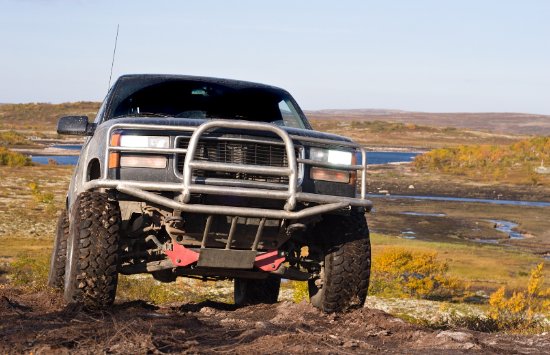
The Style: While not directly related to off-road performance, the style of the car is often a personal preference. Some off-road enthusiasts prefer rugged and aggressive looks, while others may lean towards a more refined appearance.
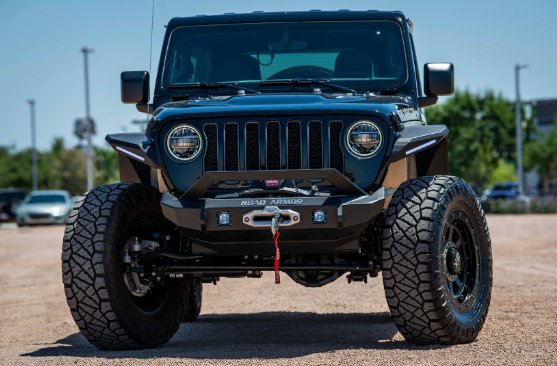
Considering these factors will help you choose an off-road car that meets your specific needs and preferences.
What’s the Best Car Suspension for Bumpy Roads?
A suitable suspension system is crucial for a smooth and comfortable ride on rough roads. Different car suspensions offer varying performance levels, and choosing the right one for your off-road adventures is important.
There are several types of car suspensions to consider:
- Dependent Suspension: This type of suspension connects the wheels on the same axle, meaning the movement of one wheel affects the other. Dependent suspensions are commonly found on older vehicles and have limited articulation.
- Independent Suspension: Independent suspensions allow each wheel to move independently, improving traction and stability. This suspension type is commonly found in modern off-road vehicles and performs better on rough terrains.
- Semi-Independent Suspension: Semi-independent suspensions combine elements of both dependent and independent suspensions. They offer improved performance compared to dependent suspensions but are less advanced than independent suspensions.
Additionally, suspension systems can be further classified based on their functionality:
- Passive Suspension: This type of suspension provides a fixed level of damping and does not actively adjust to road conditions. It is simpler in design and generally offers a comfortable ride.
- Active Suspension: Active suspension systems use sensors to detect road conditions and adjust damping in real time. They provide enhanced control and comfort by adapting to various terrains.
- Semi-Active Suspension: Semi-active suspensions offer a balance between passive and active systems. They can adjust damping based on driver input or road conditions, improving ride quality and handling.
- Adaptive Suspension: Adaptive suspensions combine active and semi-active technologies. They can continuously adjust damping based on real-time inputs, offering optimal performance and comfort.
By understanding the different types and functionalities of car suspensions, you can make an informed decision when choosing the best suspension system for your off-road car.
What Other Features Should a Best Off-Road Car Have?
While a suitable suspension system is crucial for off-road performance, several other features enhance the capabilities of an off-road car. These features include:
Bigger Tires and All-Terrain (A/T) Tires: Off-road cars often come equipped with larger tires that provide better traction and durability on rough terrains. All-terrain tires are specifically designed to perform well on a variety of surfaces.
Here are some common size options for All-Terrain tires, suitable for a variety of vehicles:
Light Trucks or Suvs:
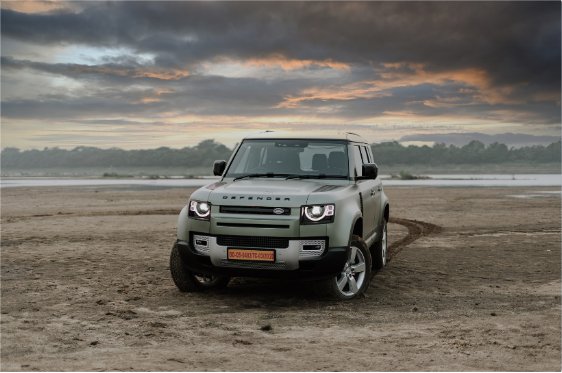
Jeeps and Off-road Focused Vehicles:
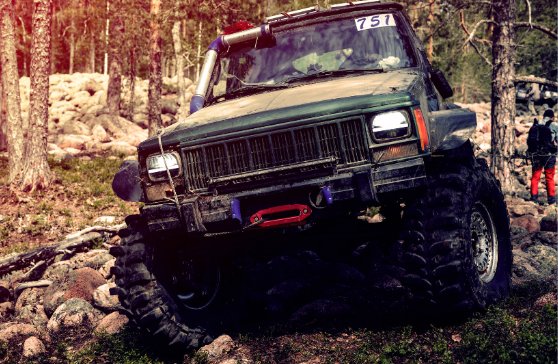
Pickup Trucks:
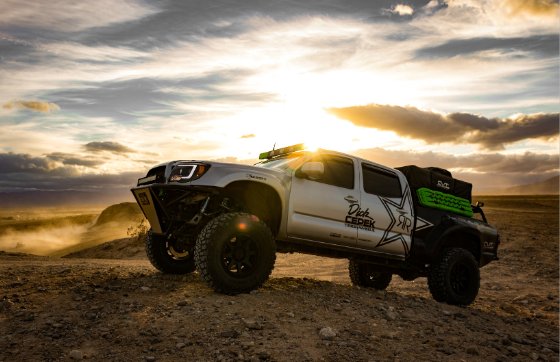
High Clearance Fenders and Bumpers: Fenders and bumpers with high clearance prevent damage to the vehicle’s body when driving over obstacles. They provide additional protection and durability.
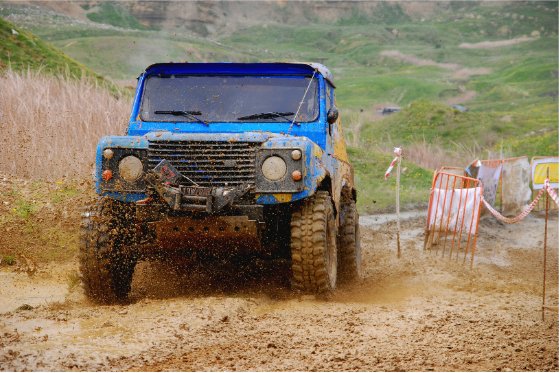
Skid/Scuff Plates (Underbody Protection): Skid plates are protective plates installed on the vehicle’s underside to shield critical components from damage. They protect the engine, transmission, and other vital parts from rocks, branches, and other hazards.
Hill Descent Control: This feature assists in navigating steep downhill slopes by automatically controlling the vehicle’s speed, allowing for safer descents.
4-Wheel Drive or All-Wheel Drive: Having a 4WD or AWD system improves traction and control, especially in challenging off-road conditions. It distributes power to all four wheels, providing better stability and grip.
Longer Wheelbase and Wider Track: A longer wheelbase and wider track contribute to better stability and handling on rough terrains. They help prevent the vehicle from tipping over and enhance overall control.
Rigid Frame for Stability: Off-road cars often have reinforced frames that provide structural rigidity and stability, allowing them to withstand the demands of off-road driving.
It’s important to note that not all off-road cars will have every feature listed above. However, these features contribute to a smoother and safer off-road experience. As you test drive different vehicles, you’ll discover which attributes matter most to you based on your specific off-road needs.
Does Auto Insurance Cover Off-Road Driving?
While standard auto insurance policies typically cover vehicles for “normal use,” such as driving on paved roads, off-road driving may have different insurance requirements. Here’s what you need to know about insurance coverage for off-road driving:
- Off-Road Insurance: If you own an off-road vehicle specifically designed for rough terrains, such as ATVs, UTVs, or dirt bikes, you can obtain specialized off-road insurance coverage. This coverage protects your vehicle specifically for off-road use and provides liability coverage in case of accidents.
- Regular Car Insurance: If you plan to take your regular car off-road, your standard auto insurance policy may not cover any damages that occur during off-road adventures. Off-roading is considered outside the scope of normal use for a regular car, and insurance companies may exclude coverage for such activities.
- Specialized Coverage: Some insurance companies offer specialized coverage options for off-road enthusiasts. These policies may cover off-road modifications, aftermarket accessories, and additional liability protection for off-road accidents.
To ensure proper coverage, it’s important to consult with your insurance provider and discuss your off-road activities. They can guide you on the specific coverage options available and help you choose the insurance policy that best suits your needs.
Conclusion
Off-road vehicles offer a powerful and versatile solution to conquer rough terrains. When selecting an off-road car, consider factors such as drivetrain, suspension, and features like larger tires, high ground clearance, skid plates, and 4-wheel drive. A well-designed off-road vehicle with the right features can enhance performance and provide a comfortable ride on bumpy roads.
It’s important to note that standard auto insurance policies generally do not cover off-road driving for regular cars. If you plan to engage in off-roading activities, consider obtaining specialized off-road insurance to protect your vehicle. Review your insurance policy and consult with your insurance provider to understand the coverage options available for off-road driving.
Embrace the thrill of off-roading with a purpose-built off-road vehicle and the right insurance coverage to ensure a safe and enjoyable adventure.
FAQs
Can a regular car be used for off-roading?
While some regular cars may possess limited off-road capabilities, they are generally not designed or equipped for extensive off-road driving. Regular cars need more features such as reinforced frames, suitable suspension systems, and increased ground clearance to handle rough terrains. Engaging in off-roading with a regular car may lead to damage or mechanical issues.
It is recommended to use purpose-built off-road vehicles that are specifically designed for off-road adventures.
Are off-road cars suitable for everyday city driving?
Off-road cars can be used for everyday city driving, but it’s important to consider their size, fuel efficiency, and handling characteristics. Some off-road vehicles may have a larger turning radius and consume more fuel compared to regular cars. Additionally, aggressive off-road tires may produce more road noise. However, if you enjoy the commanding presence and versatility of an off-road vehicle, it can certainly be used for daily commuting.
Can I get insurance coverage for my off-road vehicle?
Yes, you can obtain specialized off-road insurance coverage for vehicles specifically designed for rough terrains, such as ATVs, UTVs, or dirt bikes. Off-road insurance policies protect in case of damage or accidents that occur while off-roading. Exploring options for off-road insurance is recommended if you own a vehicle intended for off-road use.
Are off-road cars more expensive to insure?
Insuring off-road cars can vary depending on factors such as the vehicle’s value, modifications, intended use, and insurance provider. Specialized off-road insurance policies for dedicated off-road vehicles may have higher premiums due to the increased risks associated with off-roading. It’s important to discuss your specific needs with insurance providers and compare quotes to find the best coverage options within your budget.
Get the right coverage for your car with tutenagency
New tutenagency customers?
Quote auto insurance online or call (334) 502-5111 to insure your vehicle.
Disclaimer: This content is for informational purposes only and should not be considered legal or financial advice. Always consult with qualified professionals in legal and financial fields before making any decisions.

